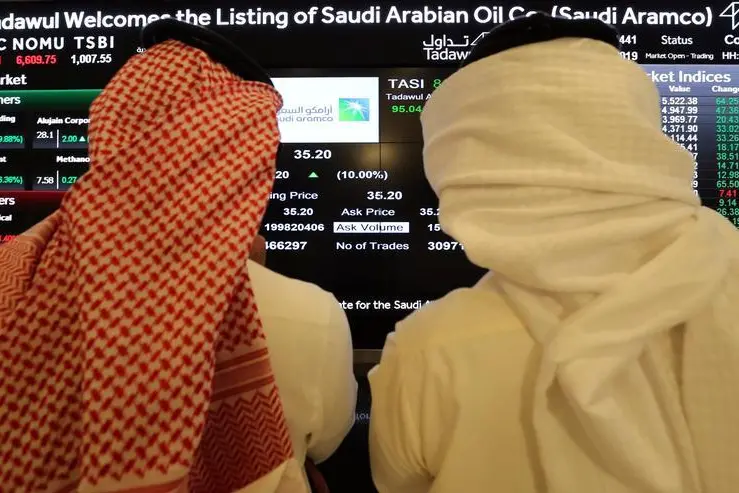PHOTO
Major stock markets in the Gulf ended lower on Tuesday, as financial shares dropped after the International Monetary Fund warned of rising debt risks in the coronavirus-hit Middle East.
The IMF said on Sunday that countries in the Middle East and Central Asia need to curb their financing requirements, as a surge in government debt, exacerbated by the pandemic, threatens recovery prospects.
Lower demand and a slump in commodity prices eroded state finances last year. In the Middle East and North Africa, fiscal deficits widened to 10.1% of GDP in 2020 from 3.8% of GDP in 2019.
Saudi Arabia's benchmark index dropped 0.7%, weighed down by a 1% decline in Al Rajhi Bank and a 1.7% decrease in Saudi National Bank.
In Dubai, the main share index finished 0.8% lower, with its top lender Emirates NBD and Dubai Islamic Bank (DIB) losing 1.7% each.
DIB, the largest Islamic lender in the United Arab Emirates, has hired banks to arrange a planned benchmark issuance of U.S. dollar-denominated Additional Tier 1 sukuk, a document showed on Monday.
The Abu Dhabi index declined 1.2%, dragged down by a 2.2% fall in First Abu Dhabi Bank , the country's largest lender, and a 5% slide in Abu Dhabi Islamic Bank as the stock went ex-dividend.
In Qatar, the index eased 0.2%, hit by a 1.5% fall in Qatar Islamic Bank.
Outside the Gulf, Egypt's blue-chip index retreated 1.4%, as most of the stocks on the index were in negative territory including market heavyweight Commercial International Bank, which was down 2.2%.
Egypt's current account deficit widened to $4.8 billion in October-December from $3.2 billion in the same period in 2019, according to central bank figures released on Monday.
(Reporting by Ateeq Shariff in Bengaluru; editing by Jonathan Oatis) ((AteeqUr.Shariff@thomsonreuters.com; +918061822788;))





















